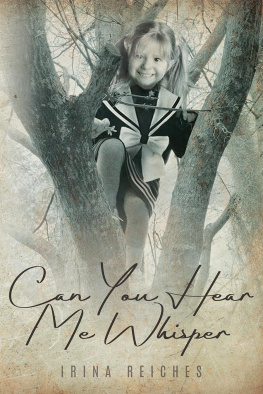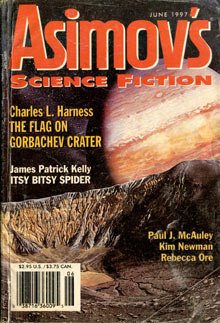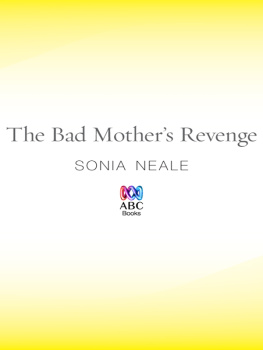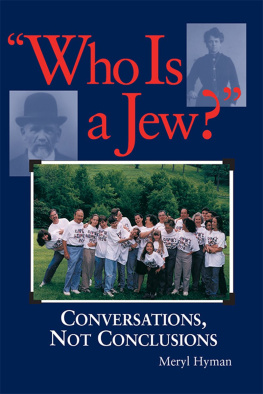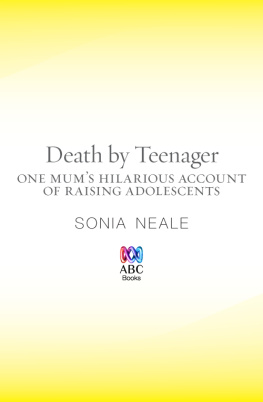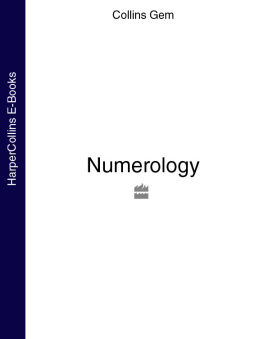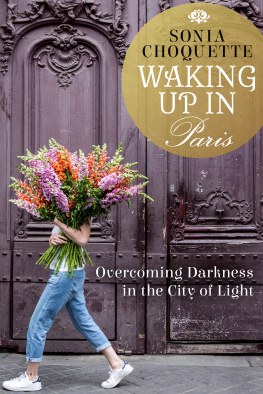ISBN 978-1-956010-27-5 (paperback)
ISBN 978-1-956010-28-2 (digital)
Copyright 2021 by Irina Reiches
All rights reserved. No part of this publication may be reproduced, distributed, or transmitted in any form or by any means, including photocopying, recording, or other electronic or mechanical methods without the prior written permission of the publisher. For permission requests, solicit the publisher via the address below.
Rev. date: 09/14/2021
Rushmore Press LLC
1 800 460 9188
www.rushmorepress.com
Printed in the United States of America
To my amazing granddaughter, Israela, who stepped unexpectedly into my life with her charming perfect smile, sunshine, and love. Izzy is a rare gift from the Almighty.
Contents
W e have no control over the circumstances of our birth, neither the time, place nor parents. I was born during the horrors of the Holocaust to two Jewish newlyweds in Vilna, Lithuania, then part of the Soviet Union quickly occupied by the Nazis. Statistically speaking, I had little chance of surviving. Over 95% of Lithuanias Jews were exterminated - a more complete destruction than befell any country affected by the Holocaust.
My father was among those murdered. I never knew him, but I intend this book to honour those very few who insisted on preserving a flicker of humanity among the consuming flames of war and annihilation; and who often paid the price of their courage with their lives.
I will never know precisely why I defied the odds. But I know for certain that it was largely attributable to one remarkable woman whose decency overcame her fear and who enabled an infant girl whose nearly entire family was executed to share her story.
The evils of war are often so incomprehensible that they tend to be forgotten in the years to come. As one of the few who were saved, I believe it would be a crime to keep silent.
I was twenty-seven years old when I died.
On April 4, 1943, we were playing Schuberts Death and the Maiden with my string quartet at the Officers Club at the old city hall in Volozin. I was engrossed in my memories. In this same place, ten years earlier, I had participated in a violin competition. My mother, Bella, had sat crying in the audience for most of the time I played.
Heavy, burgundy drapes graced both sides of the large, oval ballroom. There were four high Imperial-styled columns in each corner. The gold leaf was worn out, but its presence created an indisputable majesty. Two enormous crystal chandeliers from the Napoleonic era were dimly lit, illuminating the parquet floor with intricate designs created by local masters more than a hundred years ago. Divine sounds of my favourite composer floated through the air, trying to escape reality.
Two couples were dancing in the middle of the ballroom. One of the pretty women reminded me of my beloved Raisa. She had the same petite body, the shining cascade of curly, blond hair, and the same dreamy romantic quality about her movements.
Suddenly, I felt someone staring at me. I turned my head to the right. Orlovich!
She was sitting in the back booth next to the head of the local police who was wearing a German uniform. There was no escape. I felt a sharp pain of unexpected fear in my chest and in my head. What should I do now? I never imagined someone from Vilna would arrive in this remote town in Byelorussia.
There was clear recognition in her eyes. Pani Orlovich leaned closer to her neighbour and whispered into his ear.
I waited for two minutes, then got up to leave discreetly. Two German officers were by the door waiting for me. This was the moment I diednot two days later when they actually shot me in the yard just for fun.
H ow old is Raisa? Israel asked his friend Jasha.
Israel was aware that she was looking at him all through the evening. He pretended not to notice.
Maybe seventeen. She is stunning. Dont dream, Izia. Raisa is not exactly our class.
Raisa was a little princess known for her beauty, charm, and her warm and ready smile. She was admired by her family and everyone who met her. Despite her familys wealth, Raisa had a reputation for being very compassionate, gentle, and kind.
She was petite5 feet, 2 incheswith sky-blue eyes, blond curls touching her shoulders, and full, inviting lips that were half open in a smile. She was so young; so innocent.
Class or no class, Israel believed that should he dare ask Raisa for a dance, he would not be rejected.
When he did invite Raisa, she blushed. Her hand trembled. She danced gracefully following his every move.
The next morning, Israel woke up with a headache and a fever. He had no strength to get up or to have a cup of tea. He stayed home all day.
In a weeks time was his birthday; he would be twenty-four. Israel wished his mother was in town. His mother, Bella Israelit, was stuck in some distant village in a part of Belorussia, which after the division of Poland by Hitler and Stalin, was under Soviet rule. Bella Israelit was having difficulty getting a permit to return to Vilna.
Israel kept his mothers photo next to his bed, Actually, it was a photo of his mother, his older brother, Osik, and him. It was taken just before Osik left for France.
Osik was an ambitious, hard-working young man, who could not tolerate the recent ghetto bench policy which prevented Jewish students at the university to sit together with other students. He found it too humiliating. He chose to stand at the back of the auditorium in protest during classes.
Osik was a real intellectual who wished to make the world a better place. He dreamed of going to Palestine to build a Jewish State. But first he wanted to become an engineer. Osik left to study in Paris and was doing pretty well on his own. He wrote long letters home and didnt seem to miss Vilna.
Israel, on the other hand, loved his hometown. Vilna was a centre of Jewish culture in Eastern Europe. There were more than one hundred synagogues, educational institutions, professional guilds, a Jewish public school, a Jewish theatre, choirs, and a Gymnasium that taught in Yiddish and Hebrew. There were two Jewish choirs that sang in Yiddishone was the choir of the Jewish Educational Society, and the other was the Gerstein choir which was named after its conductor. There were also two daily Jewish newspapers and many political groups.
In Vilna there were many Jewish craftsmen including hat makers, tailors, bronze workers, and leather men; Jewish life was blossoming. Of the 220,000-person population, 60,000 were Jews. Israel was apolitical. He was surrounded by good friends, enjoyed life, and loved classical music. He had played violin and piano since he was seven years old and had won many competitions all over Poland.
In the late afternoon his friend Jasha dropped by and was surprised to find him in bed.
My God, Izia, I came by to take you out. You look sick!
I will be fine. Dont worry.
Israel did not feel better for quite a few days. On Friday afternoon he had dozed off and did not hear the front door open. The delicious smell of homemade chicken soup woke him up. It was a familiar smell, very much like that of his mothers soup. Suddenly, he was ready to eat.
Please, try a little. It is good for your health. Gentle, beautiful Raisa was holding a pretty bowl on a lovely cobalt-coloured plate with a Chinese design. I brought it from home. Please try it.
Raisa, how did you know that I was sick? How did you find me? I cannot believe it.

